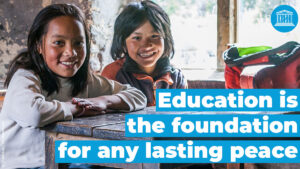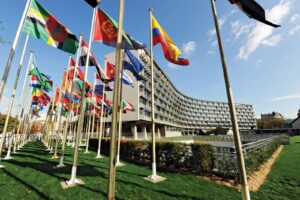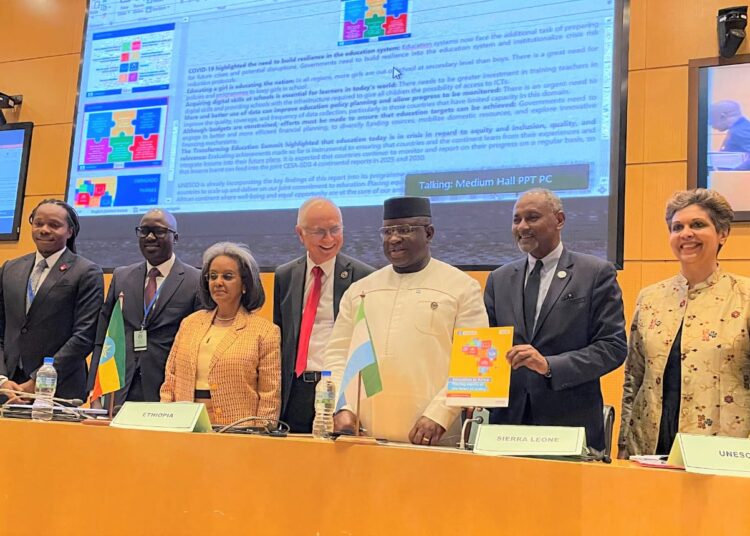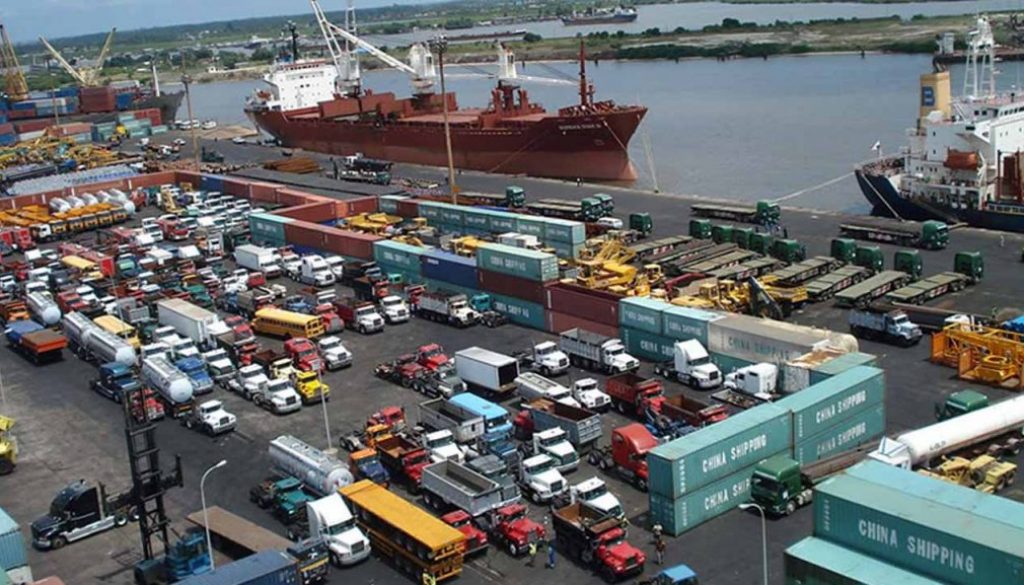UNESCO and the African Union urge governments in Africa to place equity at the heart of education policy, to ensure that all children and youth on the continent have access to quality education.
This is contained in a new report entitled ‘Education in Africa – Placing equity at the heart of policy’, published jointly by UNESCO and the African Union.
The report reveals that although many countries in sub-Saharan Africa are taking significant steps to provide quality education for all, the region has the world’s largest out-of-school population.
One in five children of primary school age and well over half of upper secondary school-age adolescents do not attend school.
In about half of African countries, the out-of-school rate among primary school-age children stands at just under 10%, and at over 50% for upper secondary school age students. This rate is increasing in several countries.
“The massive disparities in African education systems require urgent action. We need to provide all African children and youth with a safe, stimulating, and healthy environment in which they can attain their full potential. Transforming education must at the heart of countries’ efforts to build meaningful and sustainable development and economic growth,” said UNESCO Director-General Audrey Azoulay.
The report examines education in Africa from early childhood to upper secondary level and sets out the interconnected factors which prevent children from accessing a quality education.
These among them are geographical location, poverty, gender, disability, crises, conflict, and displacement.
The report shows that in most countries there are wide gulfs in opportunities between children from the wealthiest and poorest households, between children in urban and rural areas, and between boys and girls.

“About 80% of children in sub-Saharan Africa are still not taught in a language they speak at home, an approach which significantly impedes learning outcomes.
“The concept of equity must become the guideline for African education policies. We need to ensure that every child in rural and disadvantaged urban centres, and in other fragile countries and contexts, is able to receive the education and training they require,” said H.E Professor Mohamed Belhocine, Commissioner for Education, Science, Technology and Innovation of the African Union Commission.
African education systems were significantly affected by the COVID-19 pandemic, and the effects on educational attainment, learning outcomes, and disparities in education are still unfolding.
Even before the pandemic, only a handful of countries in Africa were on track to meet the UN sustainable development goals on education.
The report calls on governments to strengthen education systems’ resilience to future crises, by developing flexible forms of teaching, by scaling up the use of digital technology, and by improving data collection to better inform policy planning.
It proposes a series of recommendations to addressing the barriers to inclusion, such as making secondary education compulsory, building more schools, developing adapted curricula, improving the quality of teachers, and providing financial and academic assistance to children.
This first joint publication builds on a study conducted by UNESCO’s International Institute for Educational Planning to review the advances made by African countries to reach the goals set out in the Continental Education Strategy for Africa 2016-2025 and SDG4.
The launch of the report was held at the African Union’s Heads of States Summit, during a high-level discussion co-hosted by the African Union and UNESCO on Saturday 18 February 2023.
The event was honoured by the participation of the of Presidents of the Federal Democratic Republic of Ethiopia and Republic of Sierra Leone, as well as the Ministers of Education of Republic of Kenya and Sierra Leone (the latter as moderator).
Using a multidimensional approach to examine disparities in education, it discusses the links and intersections between household wealth, location, gender, home language, crisis and displacement, disability, and a child’s access to quality education and learning.

It presents both the patterns of disparities in education along these dimensions and the ongoing efforts by African governments for equitable and inclusive education.
It noted that equity must be placed at the centre of political prioritization, policy planning, and investment decisions in order to provide access to quality education at all levels and ensure learning opportunities that will enable children to thrive.
Although there may be no ‘silver bullet’ solution to inequality in broader society, equitable access to quality education has been identified as a particularly effective way to break the intergenerational cycle of poverty.
While over the past two decades, some countries have succeeded in coupling economic growth with greater equality, for others this has resulted in increased income inequality.
Efforts to expand access to and improve the quality of education need to prioritize equity in learning so that the most vulnerable children are placed at the centre of policy decisions and investments. Most education systems experience segregation between the more able children and those who need the extra support.
In addition to working around the more visible dimensions of equity (gender, location, poverty), it is important to delve into the invisible barriers1 that prevent many children from benefiting from the educational experience.
The negative effect that crises, conflicts, natural disasters, and unexpected events have on the most vulnerable children cannot be ignored. The analysis draws attention to the disproportionately negative impact the COVID-19 pandemic has had on disadvantaged and marginalized children, which is likely to widen existing disparities both in access and learning (UNESCO, 2021; UNFPA and UNICEF, 2020).
African governments have intensified their efforts to build the skills of school-age children and youth to prepare them for a highly competitive global labour market, and to strengthen the link between this market and education and training in a bid to help young people find productive employment.
In Agenda 2030, governments commit to ensuring equal access to affordable and quality technical, vocational, and tertiary education to increase the number of young people and adults who have the relevant skills needed to find employment, decent jobs, or become entrepreneurs, and to reduce the proportion of youth that are not in employment, education, or training (NEET).
Full report ‘Education in Africa – Placing equity at the heart of policy’ can be accessed through https://unesdoc.unesco.org/ark:/48223/pf0000384497














